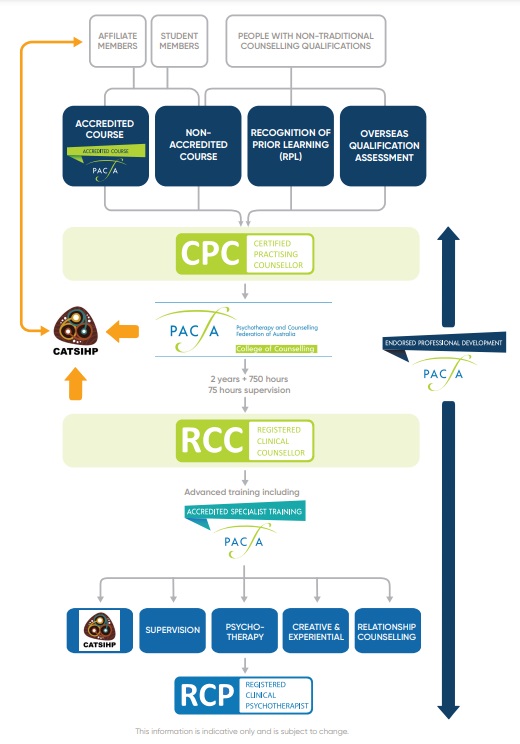This is the replay of the live ZOOM Q&A with PACFA CEO, Johanna de Wever, to discuss the recently announced National Standards project for Counselling and Psychotherapy and what it could mean for Australian counsellors and psychotherapists.
National Standards for Counselling and Psychotherapy in Australia
National Standards hold a pivotal role in shaping and maintaining the counselling and psychotherapy professions in Australia. As the Psychotherapy and Counselling Federation of Australia (PACFA) and the Australian Counselling Association (ACA) spearhead the effort to establish these standards, the profession faces significant transformations. In this Q&A interview with Johanna de Wever, we delve into the reasons behind PACFA’s support for National Standards and explore the implications for practitioners, training organisations, and the overall professional landscape. From diploma-qualified counsellors to the differentiation between counselling and psychotherapy, we unravel the potential key aspects affected by these upcoming standards, aiming to shed light on their importance for the counseling and psychotherapy professions in Australia.
Topics Explored in this Q&A Interview with PACFA CEO, Johanna de Wever:
- Introduction:
- The announcement about creating National Standards
- Brief overview of PACFA’s support for National Standards.
- The Select Committee and Recommendations:
- Understanding the Select Committee and its role.
- Explaining the recommendation for a standard, such as an AQF7/degree requirement.
- PACFA’s Support for the Recommendation:
- Reasons behind PACFA’s support for the recommendation.
- Highlighting the benefits and significance of National Standards.
- Steps Taken by PACFA:
- PACFA’s actions following the announcement of the recommendations.
- Transition to AQF7 and above
- Importance of Joining Allied Health Professionals Australia:
- Exploring the significance of PACFA becoming full members.
- Benefits for PACFA and its members through this partnership.
- Impact on Diploma-Qualified Counsellors:
- Addressing the concerns of diploma-qualified counsellors.
- Consequences of not meeting the new requirements, as they are determined.
- Options for Diploma-Qualified Counsellors:
- Grandfathering as an option.
- Possibility of bridging courses or seeking credits on existing counselling degrees.
- Challenges for Counsellors Unable to Pursue Further Study:
- Implications for those unable to continue with additional education.
- Discussing the use of the title “counsellor,” private practice, and benefits.
- Unregistered Counsellors and Lack of Registration:
- Examining the impact of National Standards on unregistered counsellors.
- Highlighting the importance of registration and its implications.
- National Standards and Training Organisations:
- Discussing the implications for training organisations.
- How training programs may need to adapt to meet the new standards.
- Collaboration between PACFA and ACA:
- Addressing concerns about differing stances on raising standards.
- Potential collaboration through ARCAP (Australian Register of Counsellors and Psychotherapists).
- Next Steps in Creating National Standards:
- Exploring the upcoming actions and timeline for implementing National Standards.
- Involvement of relevant stakeholders and decision-making processes.
- Impact on Psychotherapy:
- Differentiation between counselling and psychotherapy within PACFA.
- Implications of National Standards for the field of psychotherapy.
- Overall Impact on the Profession:
- Discussing the broader impact of National Standards on the counselling and psychotherapy profession.
- Potential benefits, challenges, and changes expected.
- Concluding Remarks & Feedback:
- Providing an opportunity for Johanna to add any additional insights or comments
- Live questions and feedback from counsellor and psychotherapist attendees.
It is an exciting time for counselling and psychotherapy in Australia, I hope you enjoy this informative discussion.
The PACFA Pathways Johanna discussed in the Q&A




